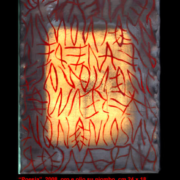Abstract
Through the clinical material taken from the experience with therapeutic groups held at a Public Mental Health Service for children and adolescents in Rome, the group thought emerges as the individual play encounters, clashes and interweaves itself with the collective one, opening children’s minds to a multifaceted creativity.
The children who are involved in these groups almost always present an ego fragility, that makes them particularly anxious and defended in front of the others, the difficulties and the unexpected events, with a poor grip on reality and ability to control the impulses.
The small group offers them a place to re-model the behaviors, the relationships with others and with things in a setting where it can be possible to work on the imagination, the emotions and the encounter, looking for new ways to cope with the experience.
The imaginative play, both individual and collective, helps children to break free from the compulsory actions and vicious circles of fears.
Finally, it allows them to imagine new strategies and narrative plots in which they can play Read more


